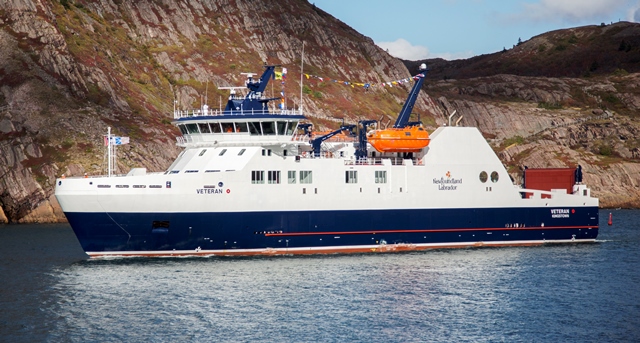
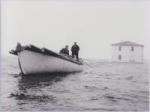 The future of NL’s communities serviced by ferries is a political minefield. Depending on your viewpoint, the geographic dispersion represented by these communities is our curse, or our defining and cherished characteristic. Discussion on the topic often devolves into caricatures of townie versus baymen, our future and our past. On one side is the hypocrisy of one larger island telling smaller islands they have to move. Memories of Resettlement are not far behind, nor are phrases such as cultural genocide. On the other side is the cost borne by the province to maintain these remote communities, including transportation, health and education.
The future of NL’s communities serviced by ferries is a political minefield. Depending on your viewpoint, the geographic dispersion represented by these communities is our curse, or our defining and cherished characteristic. Discussion on the topic often devolves into caricatures of townie versus baymen, our future and our past. On one side is the hypocrisy of one larger island telling smaller islands they have to move. Memories of Resettlement are not far behind, nor are phrases such as cultural genocide. On the other side is the cost borne by the province to maintain these remote communities, including transportation, health and education.
But the answer will not be found in the clash of ideology at the theoretical level. We need to consider each community and its own unique circumstances for both economic and moral reasons. There are practicalities to supporting groups of communities. In many cases a 20% reduction is services will not result in a 20% reduction in cost. And it’s also essential to see these communities as just that, communities where people live, work and ground themselves.
 My grandfather and great-grandfather helped the last two residents on Iona move to Fox Harbour. Iona is a spec of rock not much bigger than a soccer pitch in the middle of Placentia Bay. Standing on it you wonder how winter storms didn’t roll right over it. But it had fishing grounds on its doorstep. And when you were under the power of oars, not engines, being close to the grounds made a big difference. Concerned the elderly couple might not make it through another winter, my family convinced they to move ashore, where the community saw they were taken care of.
My grandfather and great-grandfather helped the last two residents on Iona move to Fox Harbour. Iona is a spec of rock not much bigger than a soccer pitch in the middle of Placentia Bay. Standing on it you wonder how winter storms didn’t roll right over it. But it had fishing grounds on its doorstep. And when you were under the power of oars, not engines, being close to the grounds made a big difference. Concerned the elderly couple might not make it through another winter, my family convinced they to move ashore, where the community saw they were taken care of.
Over in Bonavista Bay, I make an effort to stay a night every summer on Sailors Island, where the only remnant of the community is the cemetery. An elderly relative of mine was just a girl when the houses were hauled over. These families moved for different reasons. Some to provide a better life for their family. Some because the communities were dying. And others because they knew they where simply on their own.

David Blackwood – Hauling Job davidblackwood.com
When the reason for a community’s founding ceases to exist, should the community remain? Everyone has the right to choose where and how they live. But how far does society’s responsibility to support that choice go? What level of service should NLs remote communities expect and how should they be funded? Should ferries be similar in cost to road transportation (aka road equivalency), or should they be funded mostly through user fees? How do equity and equality apply? Should living in a remote community mean less services or more expensive services? Do we have a responsibility for equal supports or equity in outcomes?
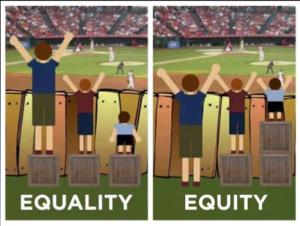
No matter your personal standpoint on support of remote communities, there are some difficult facts about the transportation costs associated. For starters the annual Marine Operations budget for the province is $143 million ($6,100 per person served). To be clear this does not include Marine Atlantic, a federal budget responsibility. For context the annual cost of road maintenance and improvements for the province is $250 million ($470 per person served).
[Note: 09/02/16 The paragraph below has been edited to include data from Fogo/Change Islands]
Looking specifically at the island ferry system, the operating budget is $50 million and services 14 communities with 7,400 people at a cost per capita of over $6,700. Only 4 percent of the operating cost of ferries is recovered through fares, to say nothing of the capital cost of purchasing the ferries and terminals (another $50 million in 2015-16 alone). Cost recovery rates for other ferry systems in North America range from 50-90%. When we include both the operating and capital cost for the island ferry system, the cost per person served rises to $13,500, 28x the cost per capita of the NL road system.
So what are some of options we have as a province?
- Support these communities to retain their people and generate economic opportunities.
- Continue the status quo. Fund ferries to 98%. Let the communities continue their decline.
- Increase the cost recovery rate of ferry services to 65%, representing a 13x increase in fares for Bell Island and over a 40x increase in fares for most communities. This would increase the cost of passenger transit, and also goods, including food.
- Turn the ferry services over to private operators. Lease the vessels to them and mandate a minimum level of service allowed.
- Stop providing ferry service to selected communities. Offer optional resettlement assistance to any who wish to relocate. Sell the ferries used on those routes.
The case of our ferry system is an extreme example of the discussions required around how we support rural and isolated communities. It is a difficult dialogue, but one we must have to find a way to sustainability.
BACKGROUND & SOURCES
NL’s Island Ferry System: Key Statistics
[Note: 09/02/16 The table below has been edited to include data from Fogo/Change Islands]

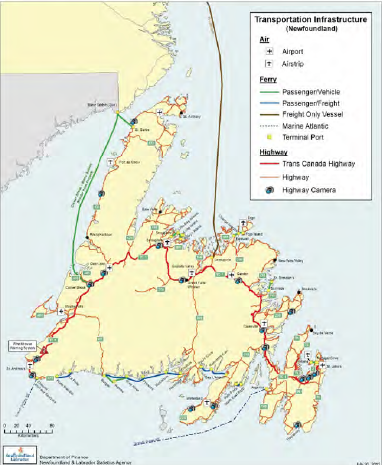
Cost Recovery Rates – North American Ferries:
- Marine Atlantic 65%
- BC Ferries 92%
- Washington State 66%
- TransLink 51%
Budget Summary (2015-16)
Roads
Maintenance (Admin) $9,600,000
Maintenance (Summer) $21,200,000
Maintenance (Winter) $82,200,000
Construction $137,000,000
$250,000,000
Ferries
Administration $9,300,000
Operations (Island) $49,400,000
Operations (Labrador) $27,000,000
Capital (Terminals) $13,100,000
Capital (Ferries) $41,500,000
$143,700,000
GNL Departmental Budgets (2015-16)
http://www.budget.gov.nl.ca/budget2015/estimates/estimates_2015_16.pdf
Marine Services: PP.108-110
Briefing to the Minster of Transportation and Works (December 2015)
http://atipp-search.gov.nl.ca/public/atipp/requestdownload?id=2041&
Marine Services: PP.122-159
Road Equivalency
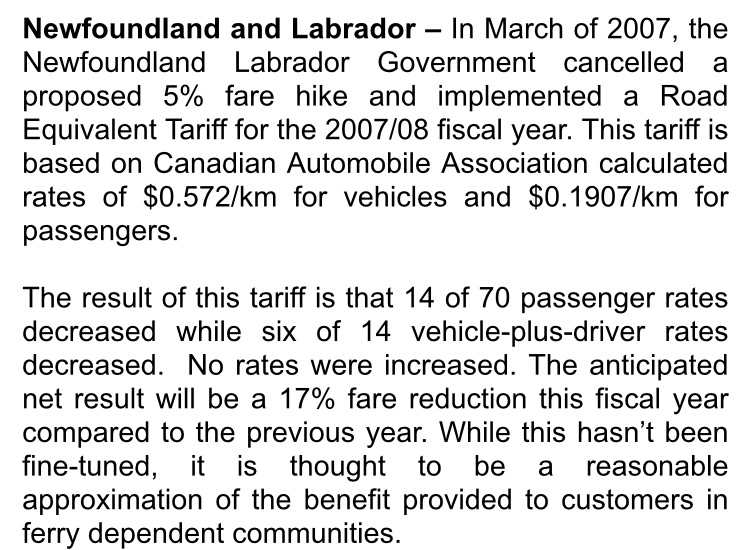
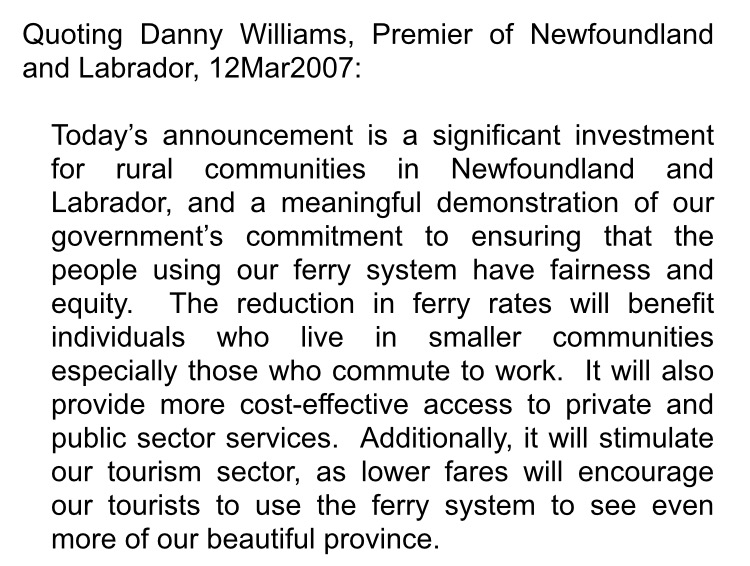








stop sending our raw material out of the province [ie] red fish to china for processing we would have some if not all of a fish plants working and also to pay fisherman equal pay as in other provinces [ie] nova scotia oaying fisherman almost double for there catch compared to nl fisherman something wrong with that picture
these small communities use to be the back bone of our economy now its oil or should i say use to be oil remember fish can replenish but oil can’t
This is not even counting forgo and change islands it’s time we forced resettlement on these islands as they are a drain on the economy
Barry Curtis, if you think providing services to Fogo Island/Change Islands is what has drained the economy of Newfoundland, you are grossly mistaken. Review the political decisions of decision makers in this province – try educating yourself instead of advocating that things be forced onto others. Good day sir.
doesn’t seem like Mr. Curtis was singling out fogo and change islands as what has drained the economy but all the islands in general in the study. This article is definitely an eye opener to some of the issues that should be looked into further as we are in a major deficit. Personally I think raising the rates on these runs should be done. This is coming from someone who has once worked on these ferries. A lot can be done in cutting unnecessary overtime charges on the ship side. A lot of workers are abusing overtime and cutting hard into the operating budgets.
Just a quick note, your link to the government’s estimates is “broken”, you need to delete the final / in the href.
Should be http://www.budget.gov.nl.ca/budget2015/estimates/estimates_2015_16.pdf
Thanks for the informative post!
You failed to mention Fogo and Change Island where we have a huge fish processing plant that helps the economy for more then just our islands. We are also self sustaining in that there are jobs on our island, we don’t have people travelling every day to work like you see on Bell Island.
We are aware of cost associated with these services, having a back ground from a community that was resettled, to move is hard on all the families. It is better for the young generations, more opportunity. But it should always be up too the people, not the province. To complain about our heritage, to move it and forget it is ridiculous when u consider the millions and millions that’s sunk into the north, where welfare rates are as high as 49% in some communities. I can go on about the subject but what bothers me the most is you keep saying Newfoundland and Labrador, but yet Labrador runs are not on here, places like Williams harbour and so on.
How about the ferry to Labrador? It might not be a Provincial Ferry but its certainly paid for by the Province. Get some umber on that one.
Very interesting stats. These communities were all settled by and large for fishing reasons. There is no longer a reason to stay in these communities to fish. The fishery is now a mobile venture and boats can operate from anywhere. The cost here for the number of people is staggering. While it may not be what is crippling the finances of our province it is a contributing factor and one that needs to be looked at. Bell Island is probably the one that stands out the most here. It was a one company town that should have ceased to exist when the mine shut down. Most people that live there, commute to the St. John’s area for work yet services of all sort are still required at an extremely inflated cost when compared to the provincial average.
And I don’t buy the use of the heritage and cultural aspect. The small, quaint, everyone friendly, Newfoundland village with gulls chasing boats returning from the fishing grounds is very much a thing of the past. Keeping these very remote communities serviced at a very high cost per resident is not justified from a heritage/cultural standpoint.
I think the annual cost for Little Bay Islands was around $1.3 million. 89% of the residents agreed to resettle. They needed 90%. Is it possible that part time former residents who live and work away but return to the family plot using it as a cabin were part of the decision making process? Is it possible that people who simply bought an old house to use as a get away were allowed to vote and influenced the outcome in their favour? These two groups have more to lose than residents who may want to move.
But let’s not pick on just Bell Island. There are countless small towns at the end of roads in this province that are costly to maintain. The days of people needing to live in them for work are long gone. We are too few people spread over too large a space! The cost of services is extremely high. It may not be with this round of deficits and budget deliberations but hard decisions will be made on all of our remote outports in the future and it will change this province just as it was changed by many other shutdowns and resettlements in the past. Alberta oil money has allowed some of these outports to survive that may have become ghost towns with the shutdown of the ground fishery in 1992. The luck may be running out.
And yes as someone mentioned why is Labrador not mentioned here?
if you took time to check facts you,ll see nl.was paid 20 million dollars to to take over the south coast ferrys.they did this to balance the budget when clyde was premier.i think it was 140 million for the lab.run.if they left it as it was the federal government was paying for it.
Jay should back up his overtime abuse statement with facts instead of making marine service employees look like abusers. No doubt there could be abusers but all overtime has to be approved. Much of my overtime saves goverment money…..not increasing cost. Would be interesting to see facts backing up his statement.
I’ve even seen ferry owners pull up in their diesel trucks and fill up,along with a few 45gallon drums-talk about abusers
Talk about abusers..I’ve even seen a ferry OWNER fill up the tank of his diesel truck (and several 45gallon drums to take home),all paid for by the provincial government of course.
There’s a few ferries that go to substantial populations and they must be left as thery are; Fogo and Bell Island. The others must be scrapped! They contribute nothing to Newfoundland and Labrador that no other bay community contributes. What does Gaultous contribute that say Hermitage dosent? These are a selfish few who are costing us sensible taxpayers who moved long ago a forutne. People complain about the roads? Well imagine if we had even half of our ferry budget freed up contribute. Absolutely ridiculous.
Newfoundland contributed very little to Canada from Confederation to 2008 and Marine Atlantic took $252 million from the feds over 5 years. Hell, I remember hearing people moan about their operating budget was being slashed from the feds. Ironic.
Nice try, however comparing Newfoundland and an outport is foolish at best. Newfoundland has substantial resources, a variety of cultures, a magnificent history, a strategic position, etc. Literally the only point to these community’s was fishing. Now that the fishing is over their purpose is non existent and they are a drain to the province. Not only that but the ludicrous 90% approval required to resettle is unreasonable and unfair to those who have a sound state of mind and know resettlement is the only hope for the future.
Your comment means jack squat seeing how oil prices are at an 8 year low, mineral prices aren’t doing much better, and we STILL have a cod moritorium for close to 25 years. It’s hilarious you complain how these rural communities are a drain on the province, yet NL was a drain on Canada for about 50 years…especially at a time when fishing was the only thing the province had going for it.
You can’t have it both ways.
Just curious Brendan O’Brien,but what town/city do you live in?Apparently one with one with 100% employment and the most effiecently delivered services in the province(roads,healthcare,education,etc etc).I am from Rencontre East,and we(in particular) have been doing pretty well economically between fishing,aquaculture, and people who work offshore & out west/Labrador.If every single per capita government expenditure was tallied I don’t think we would be that different than the rest of the province.To say that all isolated towns should be scrapped with the exception of Fogo and Bell Island is quite a bold statement,and one that I feel is ignorant and wrong.I’m not sure what has given you such a holier than thou attitude,but I’d be interested to know how where you live supports the whole province.
It’s not that other communities contribute so much is that the isolated communities listed her under feet services are costing us so much? There’s literal ally no intelligent way to say that these communities warrant the cost they incur and I can only assume you ignore the above numbers or are simply slow? Brad You CANNOT COMPARE a community of less than 500 to the province and a province of 50000 to Canada, but yes up until recently we were a drain on Canada but, we had the potential to turn that around and so we have, and so we will again once oil prices come back, and they will come back they always do. These communities have no potential, they are money Pitts and its extrememyl selfish for several families to jeopardize the lives of so many others. In order to resettle a community needs to vote in favour 90%. That is ludicrous that means in some of these smaller communities one family can Sabatoge the entire communities well being.
Agreed the govt needs to change the rules re: resettlement
I’m not necessarily comparing, I’m pointing out the hypocrisy in your message and those that typically scream resettlement. I’d bet my next mortgage payment the same people who want resettlement are the first ones complaining when the Marine Atlantic boats are down and fares are gone up. It just makes their argument look stupid when they say “You guys should resettle” and then turn around and complain about living on an island in the north atlantic. How would you feel if those ignorant mainlanders told you to resettle, especially right after the cod moratorium began?
Andrew,,Recontre ferry costs about $40.000 per resident per year,,,move the residents and the plant.Please
It’s very refreshing to find a piece like this one that uses facts, as opposed to opinion, to support its ideas. Far too often decisions have been made in my province based on little more than a hunch or even a whiff of nostalgia. For what it’s worth, I’m a twice uprooted Bayman who made life choices based on what resources and information I had available. The decision to leave Red island in the ’60’s was something that I continue to see as inevitable. My decision, later on, to leave Southern Harbour was also made on practical grounds. Though a part of me longs for the special bits I left behind–particularly the free and easy access to outdoor life–my choice was made after taking the bigger picture in mind. That is exactly what we need to continue to do, but now as a people, rather than as individuals, each with their own priorities. If communities are to continue to exist and be supported through the common funds we have (aka Government Money) then we need to be sure that what we are doing is sustainable and in everyone’s interest.
Hi Maurice – My grandfather often took me across from Fox Harbour to Red Island to visit friends in the summer. A very hard place to leave. Thanks for sharing your thoughts.
Jon
The way I see it is we have 2 options-either shitter every town in the province and declare St.John’s as the only habitable place permitted,with most living in new high rise apartments to make the implementation of services more efficient and therefore cheaper;second,would be to take everyone out of here and move to the mainland.We could do away with all the needless spending on miles and miles of roads that service tiny spots,and even do away with the marine Atlantic and Oceanex ships so that the combined savings could finally deliver us to the utopia that awaits us-somewhere.
I get that it is a high cost,but people living in these towns have as much a right to continue living there if they choose and having provincial money fund ferry services,as do the people of Newfoundland to live here and have federal dollars fund ferries to get people in and out.
*Shutter, obviously 😅
Danny’s money tree is gone,,,we have to give up health care/education /and other necessities so that some generally old people can stay in the islands,,they will disappear but it may take a long time.
GUYS ,over $50,000 per year for every resident on St,Brendans (operating/capital/population change) is simply nuts,,,and this is ferry costs alone.LIKE that’s $1000 per week.NO ONE can afford that.